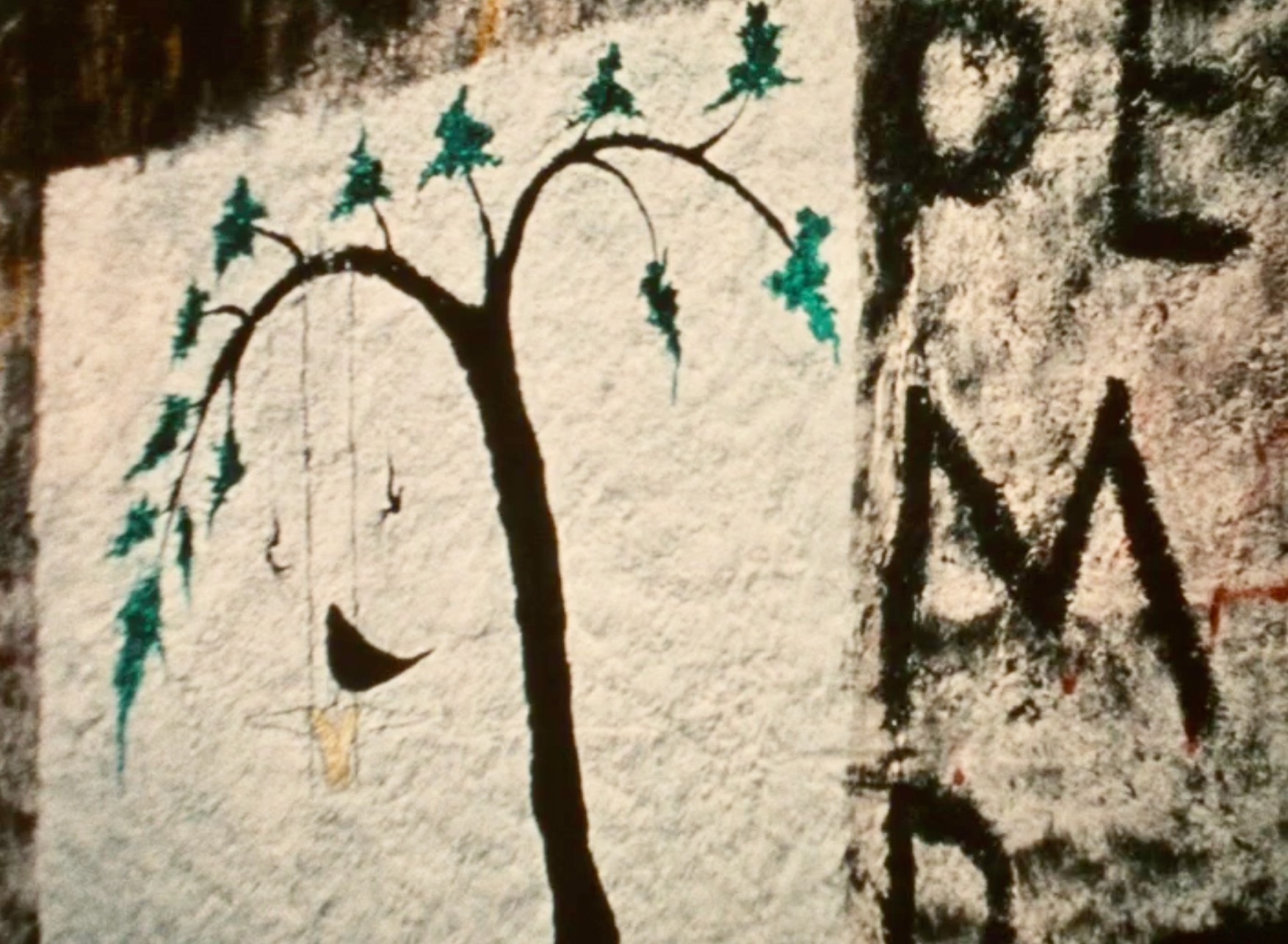Unspooling
New works by Blanca García, Ute Aurand, Sally Lawton and Julia Parks
Elizabeth Dexter




Ipsa (I Watched the Moon Around the House)
Director BLANCA GARCÍA, Year 2023, Country SPAIN
To Brasil
Director UTE AURAND, Year 2023, Country GERMANY
The Red Tide
Director SALLY LAWTON, Year 2022, Country USA
The Wool Aliens
Director JULIA PARKS, Year 2023, Country UK
John Berger proposed that in cinema, “We meet in a sky where nobody can stay.” Inasmuch as the moving image enables a type of portraiture unfixed from a unchanging subject, it also allows for the subject to locomote, fray and to not cohere. There can be a tendency for abeyance, between contact and unfurling.
In Blanca García’s Ipsa (I Watched the Moon Around the House) (2023) the camera follows the lines of an Emily Dickinson poem that gives its name to the title, like a guiding finger on the page. Shot very close, on sometimes cool-feeling reversal stock, the poem is an anchor where other images, of shoulders, botany and a buoyant moon, are partial and fleeting. García’s edits are all in-camera, imposing a linear elision. She has told interviewers: “My intuition still thinks about editing as writing.” I feel like Dickinson’s dashes have the sense of being an edit in film, too, cutting something short but reaching across to the next thing, while conjuring space for discovery.
This interest in textuality, in the page/screen and the work of others, is shared. Consider how Ute Aurand, here in Brazil, after filming diaries in Japan, India, the US, leafs through a book of Jonas Mekas’ poems, finding the company of another traveller, and lingers ever so slightly on a particular page. The image flicks past, untranslated, in characteristically lyrical and responsive montage, though some printed words ripple over, medžiu viršūnės (tree tops), bega (flow), civilizacijos (civilizations), virpuliai (vibrations). Aurand is making a similar patchwork in the film, with a São Paulo sky as orange as fruit, an admixture of colonial art in a gallery, and an atlas sweeping over the passage from and towards Angola.
Like To Brasil (2023), where indeed there is an abundance of flora (seen among the fronds are lobster’s claws, monkey brush, donkey tail, and bromeliad, native to Latin America but with their own histories of dislocation through human endeavour), Julia Parks seems interested in a natural metaphor for the things that are long-ambulating, seeds dispersed by wind, ballast, wool. And the names of the listed plant matter in The Wool Aliens delight me—pirri pirri bur, redshank, biting water pepper, touch-me-not balsam. How did these names come about—were they named on the whim of a taxonomist? Do they actually bite? Do they resemble something from a place I don’t know, in a language I don’t speak? Whole worlds slip by on the sprocket.
“You are the ruin of your mother in reverse” we hear in Sally Lawton’s The Red Tide (2022), an eight-minute-long film in which dead fish splay on the beach like flowers without stem, and young girls consider sculpture. “Your mother is a crowd.” She registers disparate conversations and details seemingly as an act of reappraisal, to steady her way venturing onto terrain that is more fragile underfoot than in her previous associations, faced by environmental calamity. The connotative charge of this scrimshandering monologue is anxious, yes, but not sad, and seems to share a call for forms of distant camaraderie. “You are reading Beatrice Gibson writing about Gertrude Stein writing about Alice Toklas.”
There is something tangential in these films. In the solitary tradition of small gauge filmmaking, they seem to draw attention to a slender network of clues through their contours and rhythms—portability, processes for recovery, for maintenance. All this, in the face of ecological and personal uncertainty. “If there is an aesthetics of the cinema,” says Berger, quoting René Clair, “it can be summarised in one word: movement.”
Elizabeth Dexter coordinates the Talks and Workshops programme and is a pre-selector for Open City Documentary Festival.
This text was commissioned by Open City Documentary Festival to accompany the programme The Moon Around the House at Genesis Cinema, 11 September 2023.